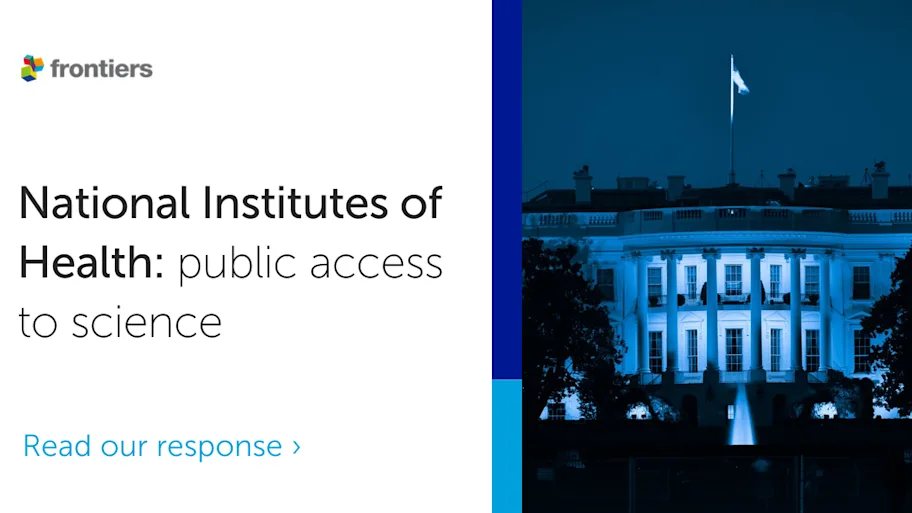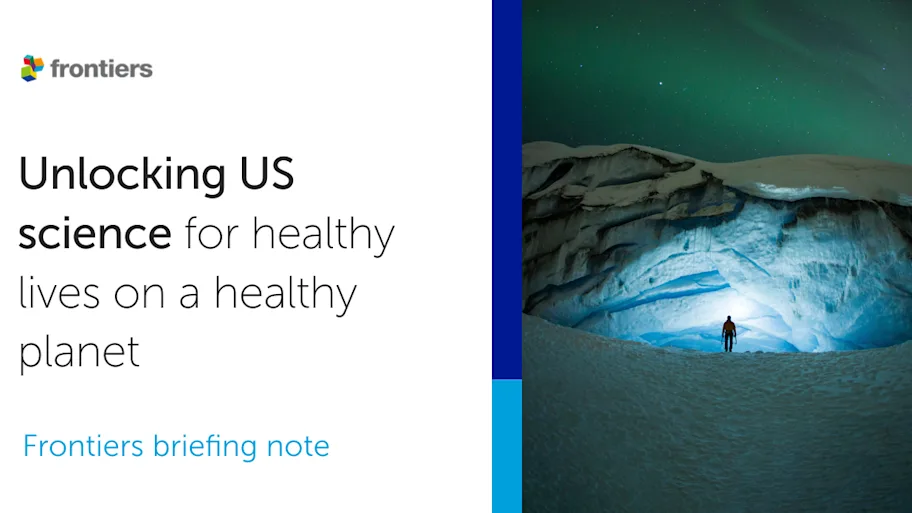
- Science news
- Open science policy
- Open Access is here to stay – and machines will enhance its future
Open Access is here to stay – and machines will enhance its future

Image: Shutterstock
Universal and open access to the scientific literature is well on the way to becoming the accepted standard by which the results of research are shared. The next step is to bring in the machines — to help scientists analyse data more quickly and efficiently, and further empower authors, editors and reviewers in the publishing process.
— By Chantelle Rijs, Head of Communications, Frontiers
In 2002, 16 forward-thinking individuals signed the Budapest Open Access Initiative. In 2016, the EU committed to make Open Access the default by 2020. And this year, a group of national funders, joined by the European Commission and the European Research Council, announced Plan S — which will make Open Access publishing mandatory for recipients of their agencies’ research funding.
This groundbreaking commitment marks a key turning point for Open Science. But equally important is the clear demonstration that Open Access delivers scientific excellence at scale. Today, Open Access journals not only rank among the world’s largest in terms of numbers of articles published, but also among the most influential in terms of citations received. As Frontiers Co-Founder and CEO Dr Kamila Markram points out, “More science is now being built on OA journals than on subscription journals.”
The accelerating transition from locking science behind paywalls to making it freely available is recognized in this year’s Open Access Week theme: ‘designing equitable foundations for open knowledge.’ As the organizers point out, with Open Access becoming the accepted standard for scholarly publishing, the focus is now on implementing new, open publishing systems and ensuring they deliver the promise of inclusive, equitable science for everyone around the world.
Gold Open Access and FAIR (Findable, Accessible, Interoperable, and Reusable) data are the best way to ensure this. In this model, articles are freely accessible from the moment they are published, as are the data sets behind them. Moreover, both articles and data can be freely shared, used and built upon thanks to interoperability and open content licenses such as Creative Commons.
Open Science, as put into practice by FAIR data and Gold Open Access publishing, provides benefits not only to academics — who can quickly improve upon new findings — but also to innovation, policy, healthcare, education and other sectors. Students can access current knowledge; policy-makers can make relevant decisions based on the latest data; patients benefit from doctors informed of cutting-edge therapies; industry can develop and improve state-of-the-art technologies. Furthermore, by facilitating new solutions to the world’s most pressing challenges — including the United Nations’ Sustainable Development Goals (SDGs) — and disseminating these to the people who need them most, Gold Open Access is helping to lay the foundations for more equitable societies across the globe. To further this endeavor, Frontiers aligned its journal portfolio to the UN SDGs and launched new interdisciplinary sustainability journals on food systems, forests and global change and soon sustainable business.
However, immediate accessibility is not enough for truly open knowledge and rapid development. We are in an era where the number of scholarly articles published — and sheer amount of data generated — exceeds what people can humanly read or manage. We will increasingly need machines and Artificial Intelligence to read these large amounts of data for us and make connections we would never be able to make. This requires that scientific knowledge be fully machine-readable.
“This is very important,” stresses Markram. “More discoveries are being published and more data is becoming available every year, so we are going to need machines to assist us with quality assessments and to help us make sense of content and data in faster and more efficient ways.”
Digitization of knowledge is the future of science — and a crucial part of the equitable foundation for open knowledge. By opening all science not only to all people but also to machines, we will even further accelerate scientific progress, technological innovation and sustainable solutions that benefit all humanity.
Frontiers has been preparing for this critical transition from the start. Already, articles published in our journals are free for both people and machines to read. We also support automated computational analysis of digital content (text and data mining (TDM) for all organizations — industry included — as a way of efficiently turning knowledge into innovative solutions and economic prosperity.
Machines will also play a key role in delivering a new generation of services for authors, reviewers and editors, built on the principles of Open Science. With Open Access as the new modus operandi — and ever-growing article submissions — scholarly publishers will need streamlined processes to manage large numbers of manuscripts in an equitable and cost-effective way while maintaining high quality standards. Artificial Intelligence can enhance peer review, for example, by speeding up automated quality checks, flagging potential issues, and assisting users during submission and review.
Frontiers is actively working toward further enabling our authors, reviewers and editors through AI-assisted Open Access publishing — watch this space for an exciting announcement coming soon!






